How do you react to messy things? Embrace? Eschew? Ignore? Make peace? Fight?
In part 1 of this series, I shared about working to be anti-racist as a white woman. I'm learning that these things are imperative: learn about the system of white supremacy, grow white consciousness and deeply understand power.
In this Letter, I'll share more about mileposts on my journey, the wisdom of friends, colleagues, and bosses of color, and calls to action that I hope will energize and motivate you, dear friends. My teachers are many, and I am deeply grateful. This work is done in relationship, and people aren't widgets. My friends of color hold space with me and see my white-centeredness, my fragility, my excuses, my fear. They believe in the "power of we" grounded in our imperfect and constant commitment to disrupt racial inequity, across differences, together.
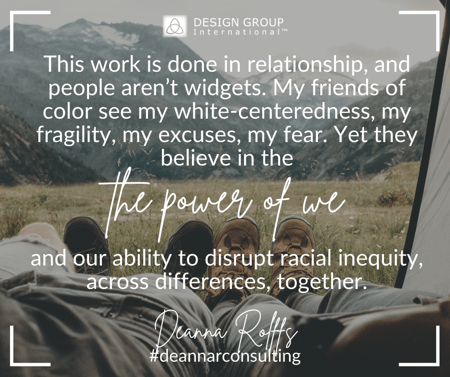
An early milestone taught me that when we're made aware of racial inequity, we can't unsee it, unless we purposefully turn away. As I learn, I grow in love, compassion, and outrage at injustice. We work hard to distance ourselves from injustice, explain it away. Its constant presence, and my increasing awareness of seeing it, awakening to it, fans the flame to increase our commitment to disrupt the misuse of power. White silence is violence. White supremacy is internalized in ourselves, our relationships, our organizations, and our systems.
An mid-point milestone in my anti-racism learning journey comes from Linda, my first Latina boss, who shared with me many years ago that when People of Color tell you about their experience of racism, your role as a white person is two-fold: Listen. Believe. Period. No extreme shock, no giving the benefit of the doubt to the one perpetuating harm. I'd now add that t is also my responsibility to not opt-out, not look away, not take the easy route to sustain comfort.
Another milestone in my journey occurred when Marcus, my first Black, male boss responded to my question, "What is my role in doing anti-racism work as a white woman? I can't teach People of Color anything." He encouraged me to have hard conversations, talk about racism together with white people. Hold up the mirror, do our own internal, never ending, uncomfortable work. Name the ways whiteness wields power and become more conscious of the patterns of whiteness.
Friends, the current state of racial inequity is too big to look away from, too present in all of our systems such as housing, education, faith, healthcare, and policing. It is too obvious to deny, too personal to ignore, and too horrific to not dismantle.
 First call to action: This work is never done. Keep learning, embrace that there is no finish line in this work, keep moving, don't stop.
First call to action: This work is never done. Keep learning, embrace that there is no finish line in this work, keep moving, don't stop.
I know this to be true: we are fooling ourselves, friends, if we think we "get it, know it all, or have it all figured out." We white folks often ask for concrete, perfect check lists. "What do I do about racism? How can I fix it? What action should I take?" Learning is action, otherwise, we continue to perpetuate harm in our ignorance. Anti-racism isn't a check the box exercise; it's a whole person, never-ending practice.
We continuously shift among comfort zone, fear zone, learning zone, and growth zone. That is the journey: living in the discomfort of the middle space, liminal space, of not knowing, of embracing the floundering, being lost, journeying to a place unknown. Yet we want plans, goals, objectives, mileposts, achievements, and completion. We want to be the "good white people," the ones who "get it."
Dr. Christena Cleveland, activist and public theologian, guides us to liberate our bodies, minds, and spirits from white supremacy. She shares that "we constantly have to leave the plantation." Initially I thought she was talking only to People of Color (we white folks tend to claim ownership). Wait, were white people on plantations? Ummmm, YES! It 100% applies to me and us white folk. Only when we see, as white people, that we are still running plantations, can we step away, repeatedly. Then we can love, live, heal and be our full selves too.
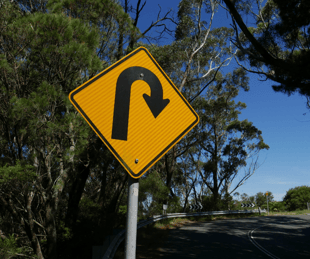 Second call to action: Let's work to increase our ability, our mental muscle, to sit with discomfort and dissonance, by getting familiar with the lack of knowing, curiosity about our lack of understanding. We white folk claim to aspire to anti-racism, yet we wield power mightily in board rooms, our neighborhoods, elevators, the park, on the committee, on our teams, and in our lives.
Second call to action: Let's work to increase our ability, our mental muscle, to sit with discomfort and dissonance, by getting familiar with the lack of knowing, curiosity about our lack of understanding. We white folk claim to aspire to anti-racism, yet we wield power mightily in board rooms, our neighborhoods, elevators, the park, on the committee, on our teams, and in our lives.
Let's sit with not knowing every answer: be curious, listen, hold up the mirror to ourselves, our relationships, institutions we are employed by and engaged with. Black and Brown people tell us that we liberal white folk often do the most harm with our good intentions and harmful impact.
We humans will do almost anything to decrease or eliminate discomfort. Our power moves are weaponized tools. How many of you saw Amy Cooper (white woman) last summer call 911 on Christian Cooper (Black man), no relation, for asking her to put her dog on a leash in a public park. She was recorded saying, "I'm going to tell them there's a Black man threatening my life." From "please put your dog on a leash" to "I'm calling the cops because you're a Black man threatening my life."
While we may not want to admit it, we are Amy Cooper, and she is us, beloveds. Listening, curiosity, and accountability will not guide us astray. Let's hold each other accountable to sit in discomfort and dissonance. They are our constant companions on our journey to dismantle white supremacy.
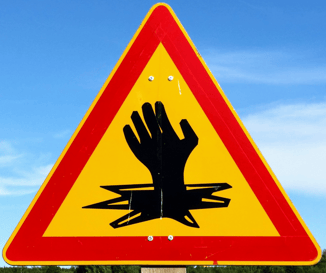 Thirdly, it may sound ridiculous at first, we white folk must continuously learn about whiteness to dismantle it. We can't dismantle what we don't see in ourselves, our relationships, our organizations, our systems. People of Color can explain exactly what whiteness is, its characteristics, its moves, how it operates, and how to survive it. Do we have that level of consciousness about whiteness?
Thirdly, it may sound ridiculous at first, we white folk must continuously learn about whiteness to dismantle it. We can't dismantle what we don't see in ourselves, our relationships, our organizations, our systems. People of Color can explain exactly what whiteness is, its characteristics, its moves, how it operates, and how to survive it. Do we have that level of consciousness about whiteness?
It's integral that we learn from, pay, and honor Black and Brown people's work. You may have, like me, read and re-read Me and White Supremacy by Layla F. Saad, How to be an Anti-Racist by Dr. Ibram X. Kendi, So You Want to Talk About Race by Ijeoma Oluo, and dozens of more titles making the best-seller lists. PS. Please buy these at Black-owned bookstores like We Are Lit. We must continuously work to make conscious these whiteness mindsets and behaviors to dismantle white supremacy. These patterns of "well-intentioned white people" from White Fragility are illustrative. Do you recognize any of these in yourself or other white people when we practice anti-racism?
- Guilt
- Seeking Absolution
- Feeling Indignant or Unfairly Accused, Objectifying (or overemphasizing race of People of Color)
- Rushing to Prove Ourselves (to prove that we "get it" or are not racist)
- Ignoring race altogether (colorblindness, etc.)
- Pretending our Preference for Segregation is Accidental
- Only Acknowledging racism in other White people, Not Ourselves
- Explaining Away/Justifying/Minimizing/Comforting
- Insisting That If "They" Won't Teach Us, "We" Can't Know
- Focusing on Delivery (of cross-racial conflict)
- Dismissing What we Don't Understand
- Extreme Carefulness
I share this list because we can do something about these things. Anti-racism is a constant recommitment for me too. Let's open our eyes. Let's dismantle white supremacy. Let's leave the plantation over and over again. Let's embrace that we don't have all of the answers, and we are no one's savior.
Yes, while race is a social construct with no biological basis, it is a matter of life and death for People of Color, particularly Black people, in the US. We can and must change this.
Coretta Scott King shared that "It doesn't matter how strong your opinions are. If you don't use your power for positive change, you are, indeed, part of the problem."
Now is not the time to rest. Now is not the time to wait. Now is the time to do our work, fellow white people.
I'd love to hear about the mileposts in your anti-racism & anti-white supremacy journey. What are your calls to action?
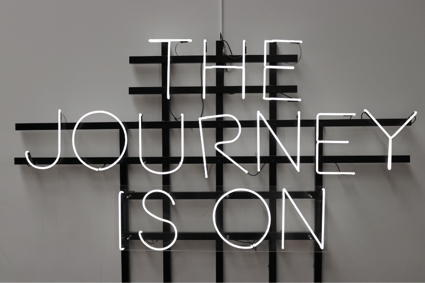
Fellow leaders and learners, I wish you courage and resilience for the journey.
Peace to you,


What I’m Reading
Regarding Anti-White Supremacy:
- Welcome To The Anti-Racism Movement — Here's What You've Missed by Ijeoma Oluo
- The Subtle Linguistics of Polite White Supremacy - by Yawo Brown
- What is Systemic Racism [videos] by https://www.raceforward.org/
- How to Deconstruct Racism, One Headline at a Time by Baratunde Thurston

Questions for Consideration
Regarding Anti-Racism and
Anti-White Supremacy:
- What is your reaction to Coretta Scott King's quote regarding being part of the problem if you aren't using your power for positive change? What power do you have? How do you use it?
- Do you feel discomfort or dissonance regarding any of the milestones or calls to action? What opportunity might that provide for you to ask a friend, learn a bit more, be curious about your discomfort?

Upcoming
Leadership & Learning Topics:
- Liberatory Design Thinking is the Bomb
- The Trap of Technical Leadership: Adaptive Leadership is Your Superpower
Tags:
courage, anti-white supremacy, brave, learning, White Supremacy Culture, anti-racism, racial equity, growth mindset, equity, love, leadership, inclusion, whiteness, power
March 10, 2021



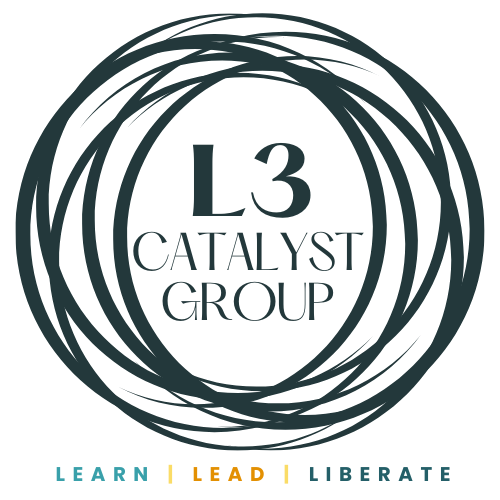
Comments